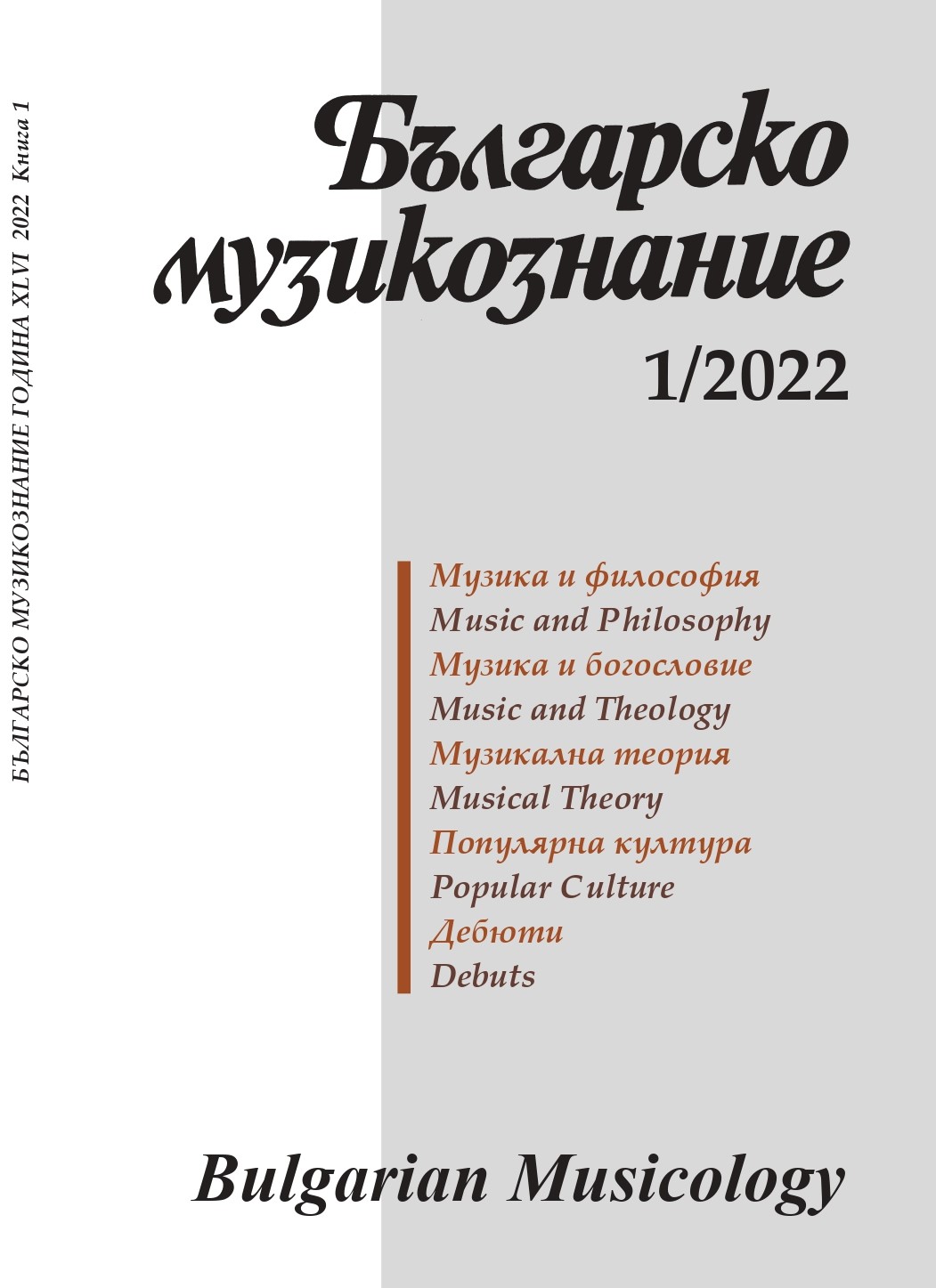Далхауз и краят на всеобхватното учение за музиката
Dahlhaus and the End of the All-embracing Study of Music
Author(s): Kristina YapovaSubject(s): Fine Arts / Performing Arts, Music, History of Art
Published by: Институт за изследване на изкуствата, Българска академия на науките
Keywords: Dahlhaus Aristoxenus; musicus; musicologist; modernity; music aesthetics; absolute music
Summary/Abstract: The purpose of this article, as far as it is a part of a large study which concerns with the historical figures of μουσικός (an antique notion), musicus (medieval one) and musicologist (a contemporary concept), is not to paint a portrait of Dahlhaus’ musicological work reflecting the character of a whole epoch, but to trace some turning points in the history of the science of music, which manifest what is constant and at the same time bring what is changeable in it. The phrase “all-embracing study of music”, borrowed from Elements of Harmony by Aristoxenus, allows outlining a parabola between the times of Classic Antiquity and these here described as Classic Modernity. What is common between them is the idea of wholeness of the science of music, uniting the all possible diversity of its inner branches. Dahlhaus’ musicological works give a testimony for the wholeness being kept. Why then should we speak about “the end”? This end is inescapable and it comes under the pressure of what Dahlhaus names “musical givens”. Enthusiastically maintaining the necessary for the music researcher to go all over from and to hold on to these givens, and recognizing their scattering from one another, he eventually acknowledges the centrifugal force reasoning the disintegration of the very science of music into specialized and disconnected from one another disciplines, and actually – its end as an all-embracing study.
Journal: Българско музикознание
- Issue Year: 2022
- Issue No: 1
- Page Range: 3-25
- Page Count: 23
- Language: Bulgarian
- Content File-PDF

